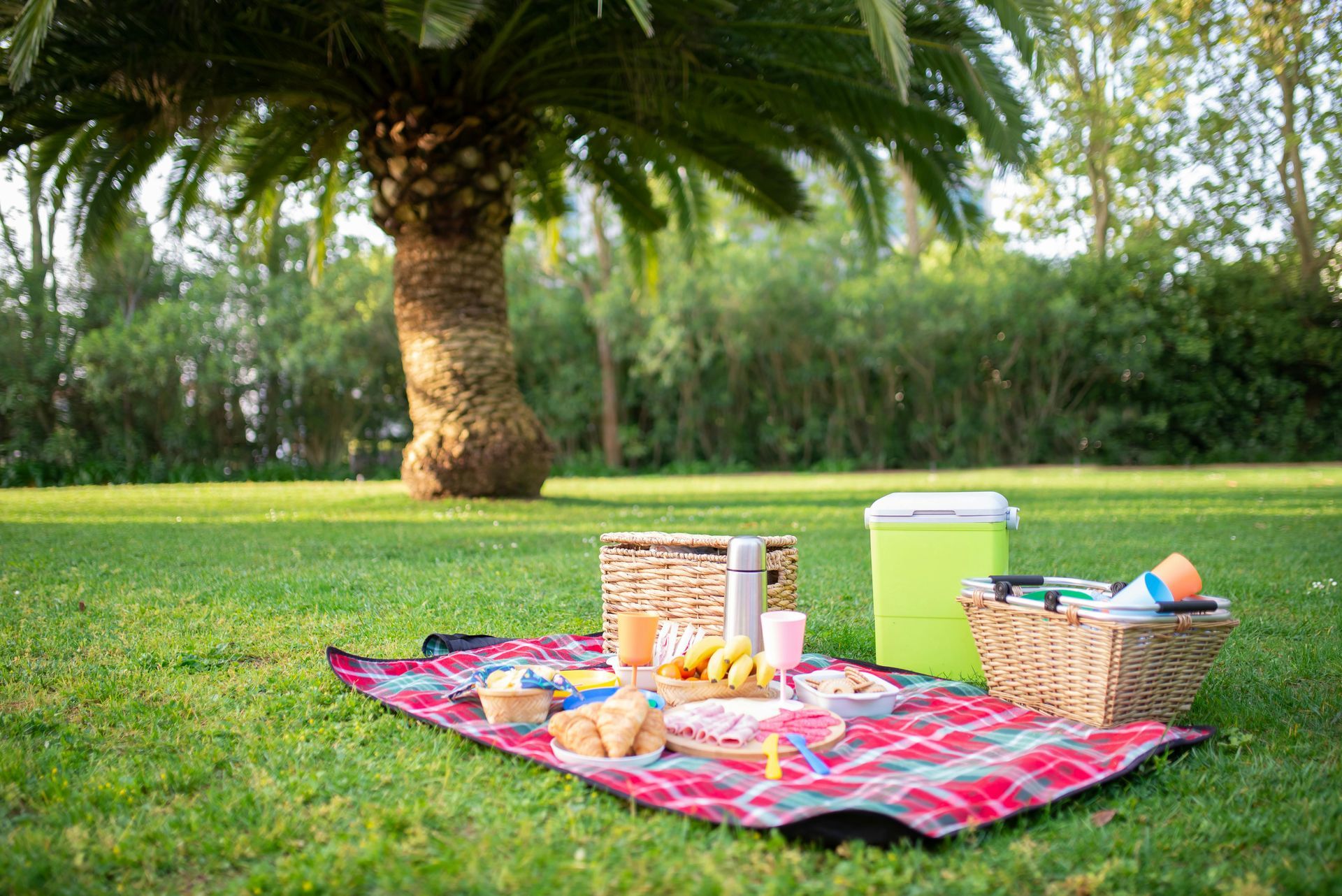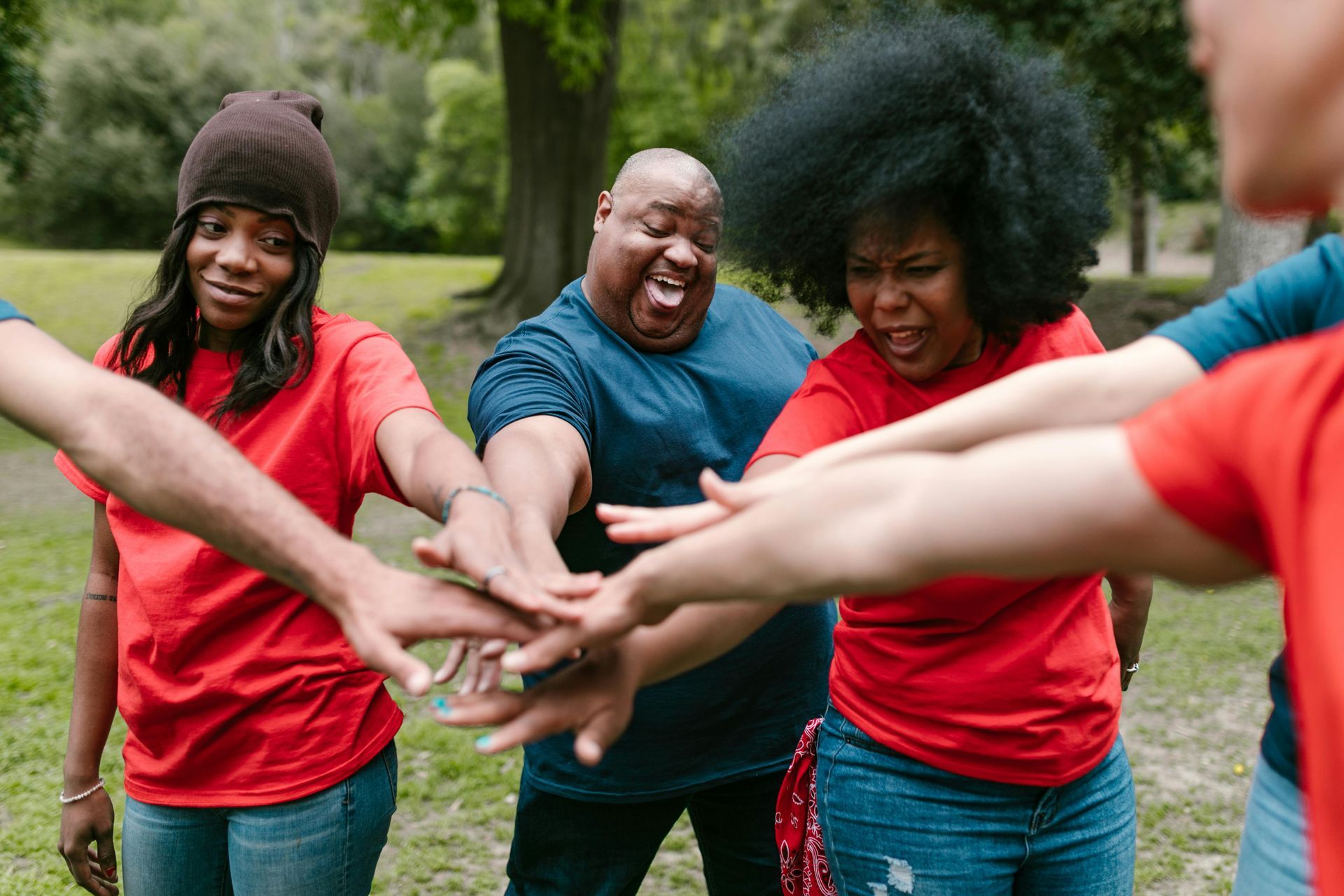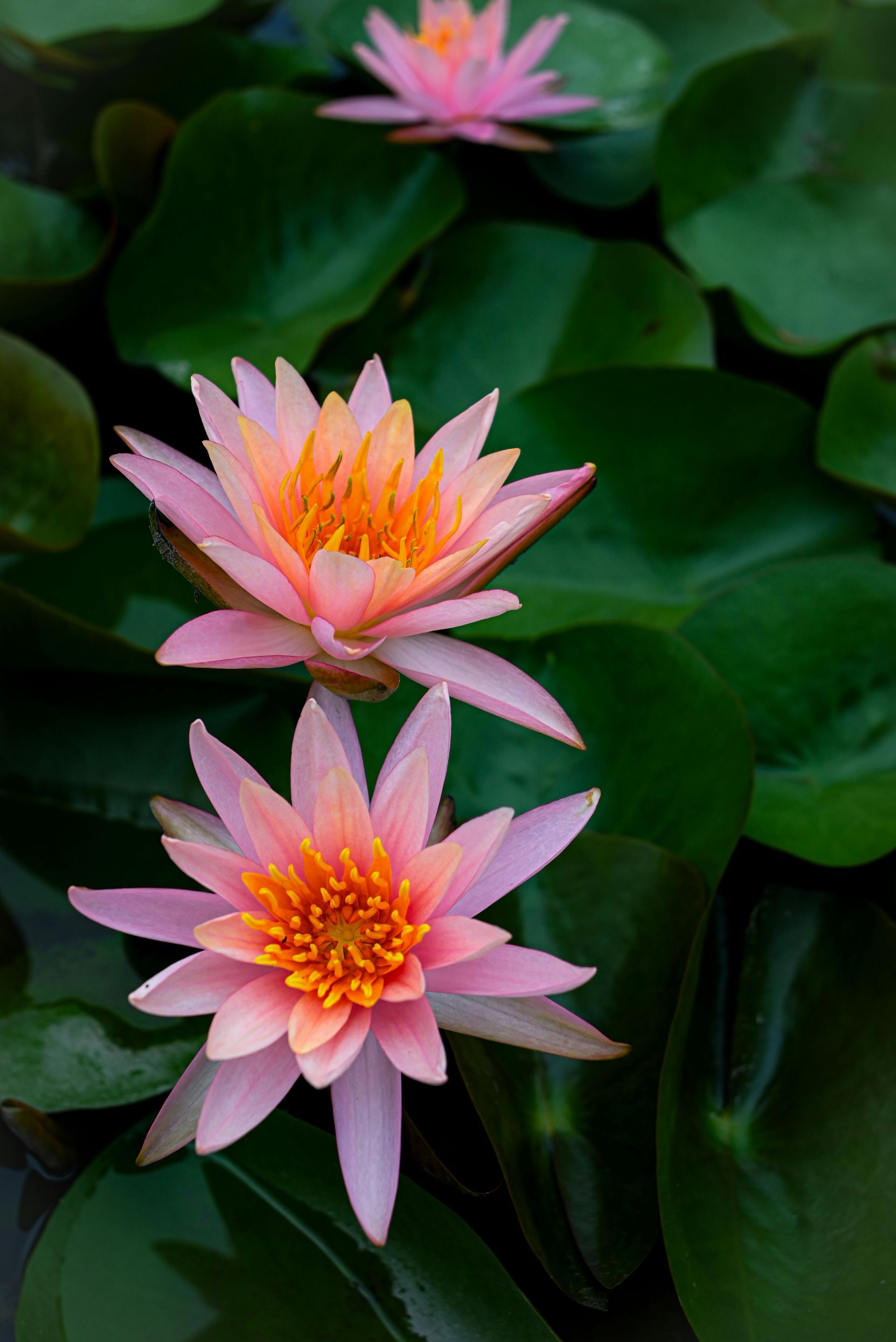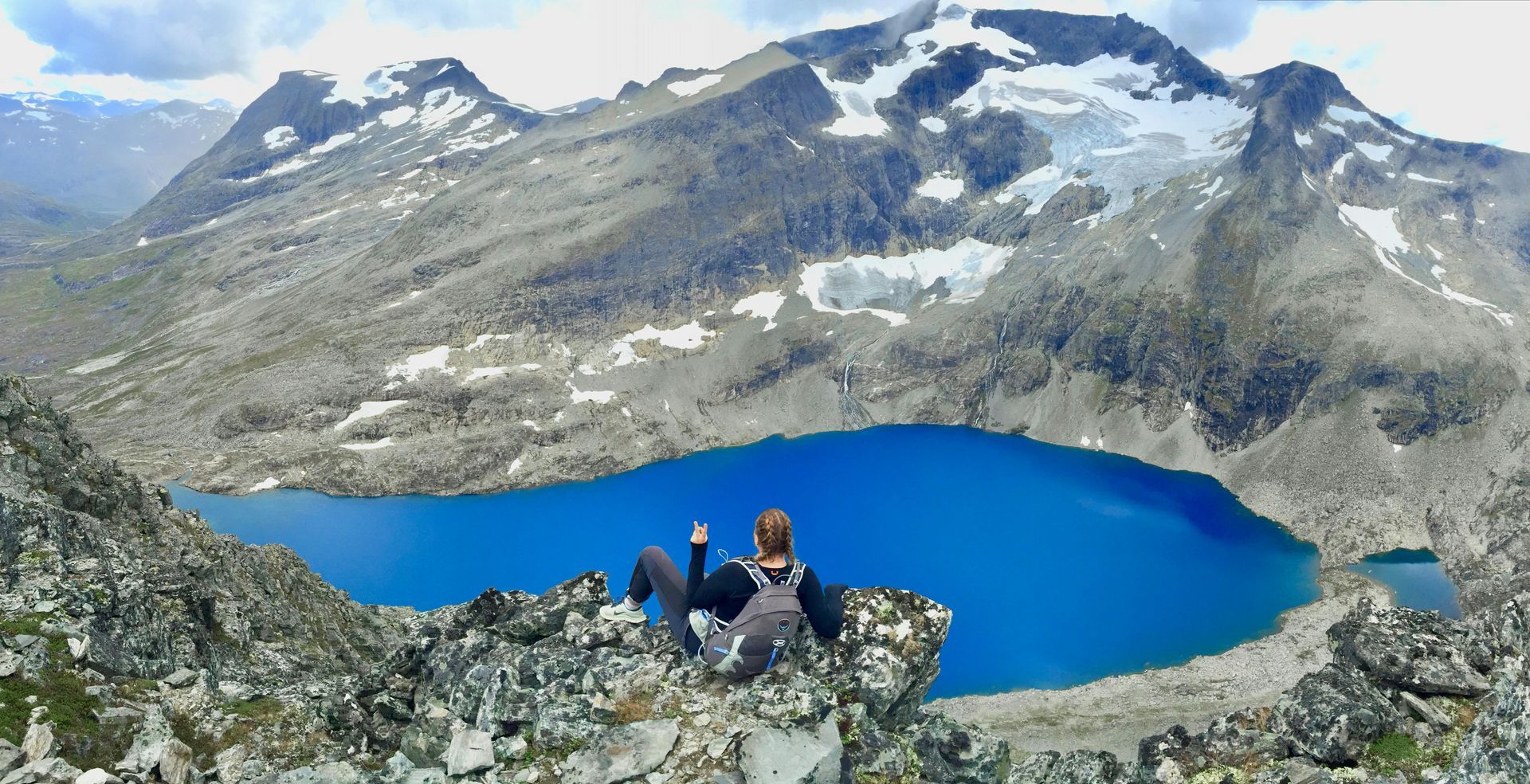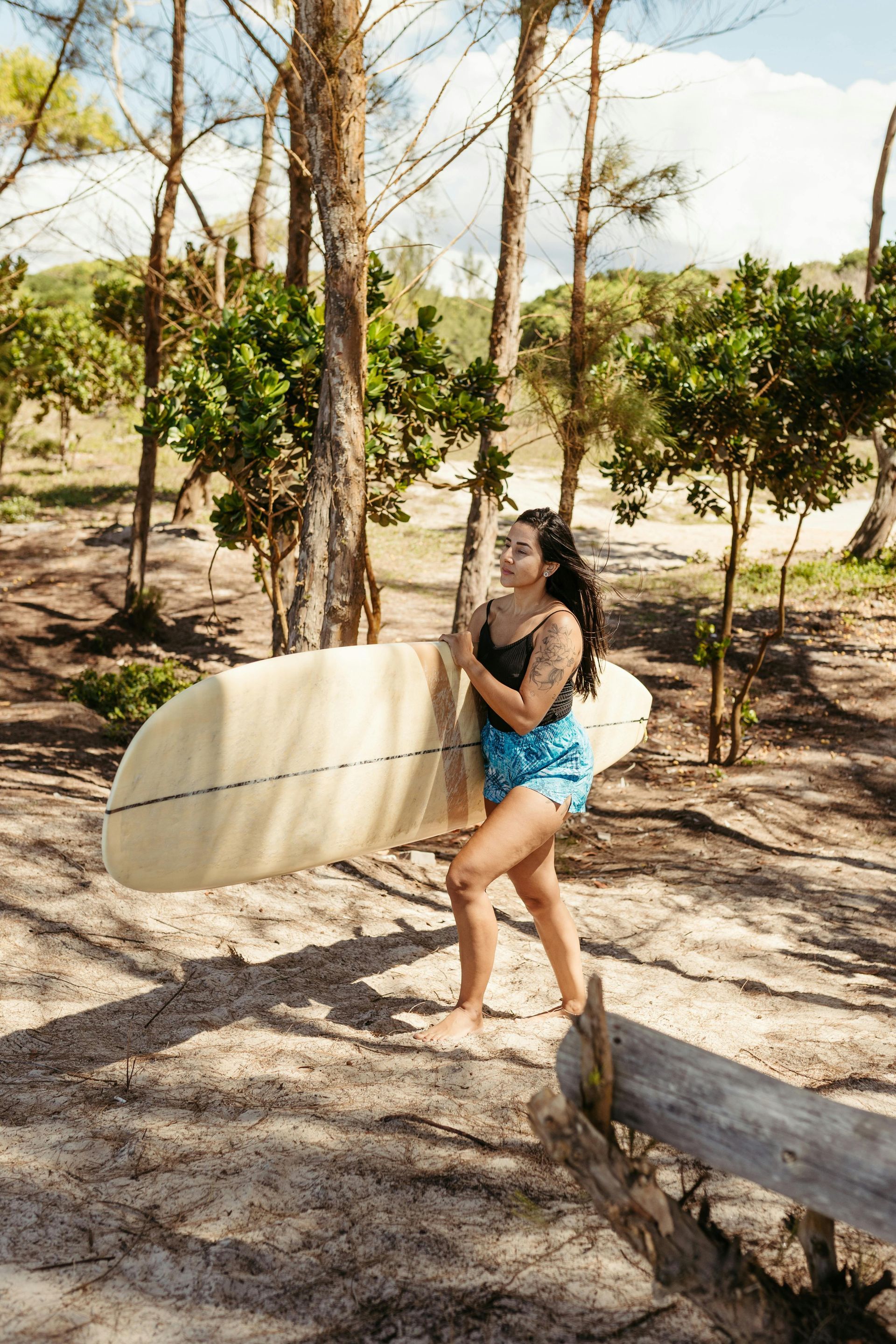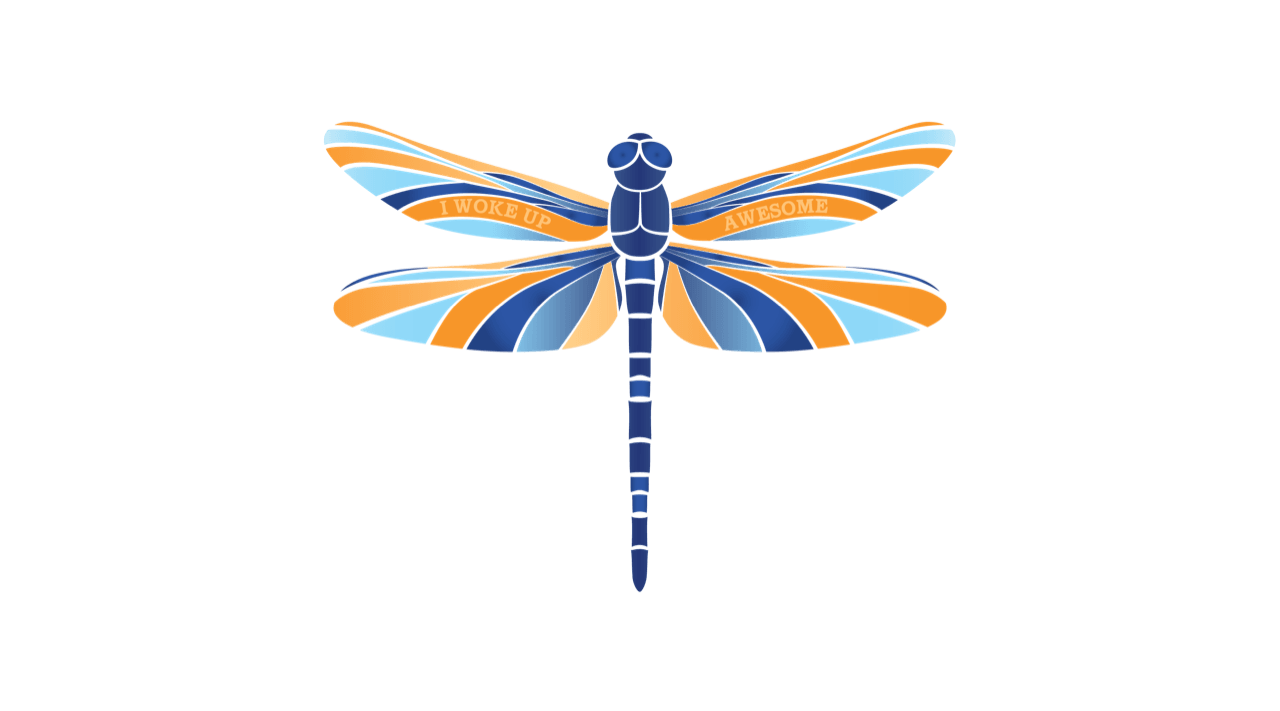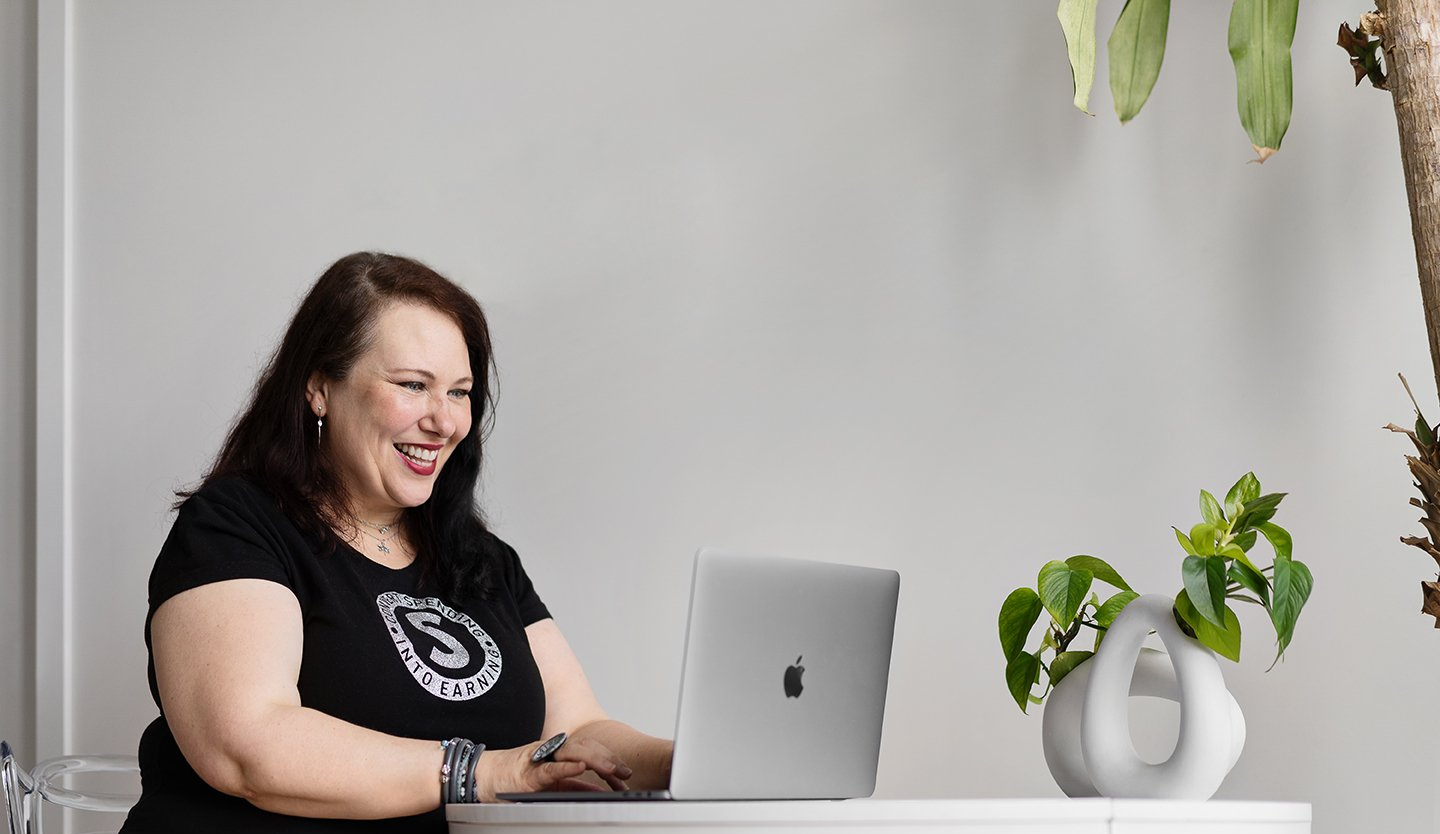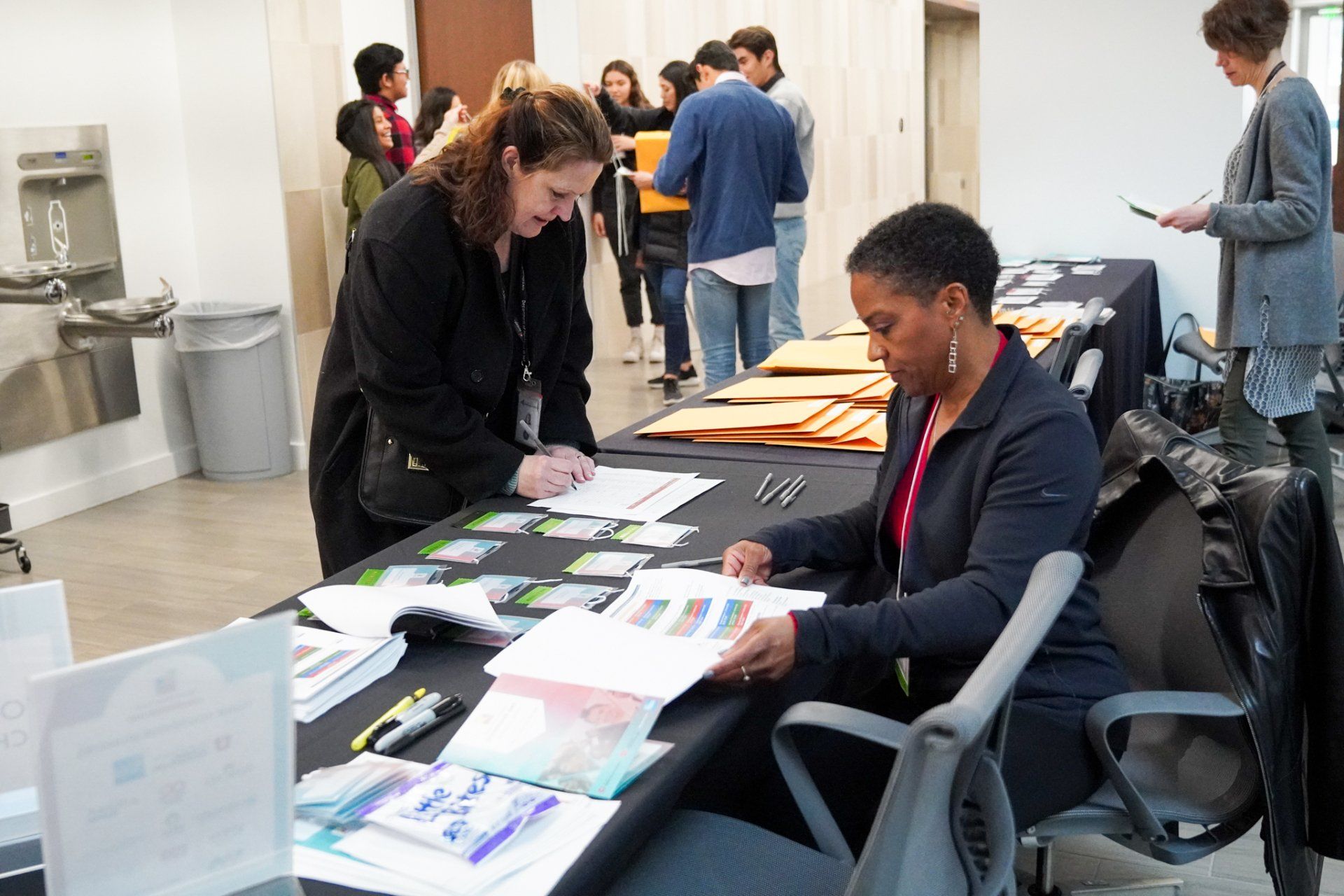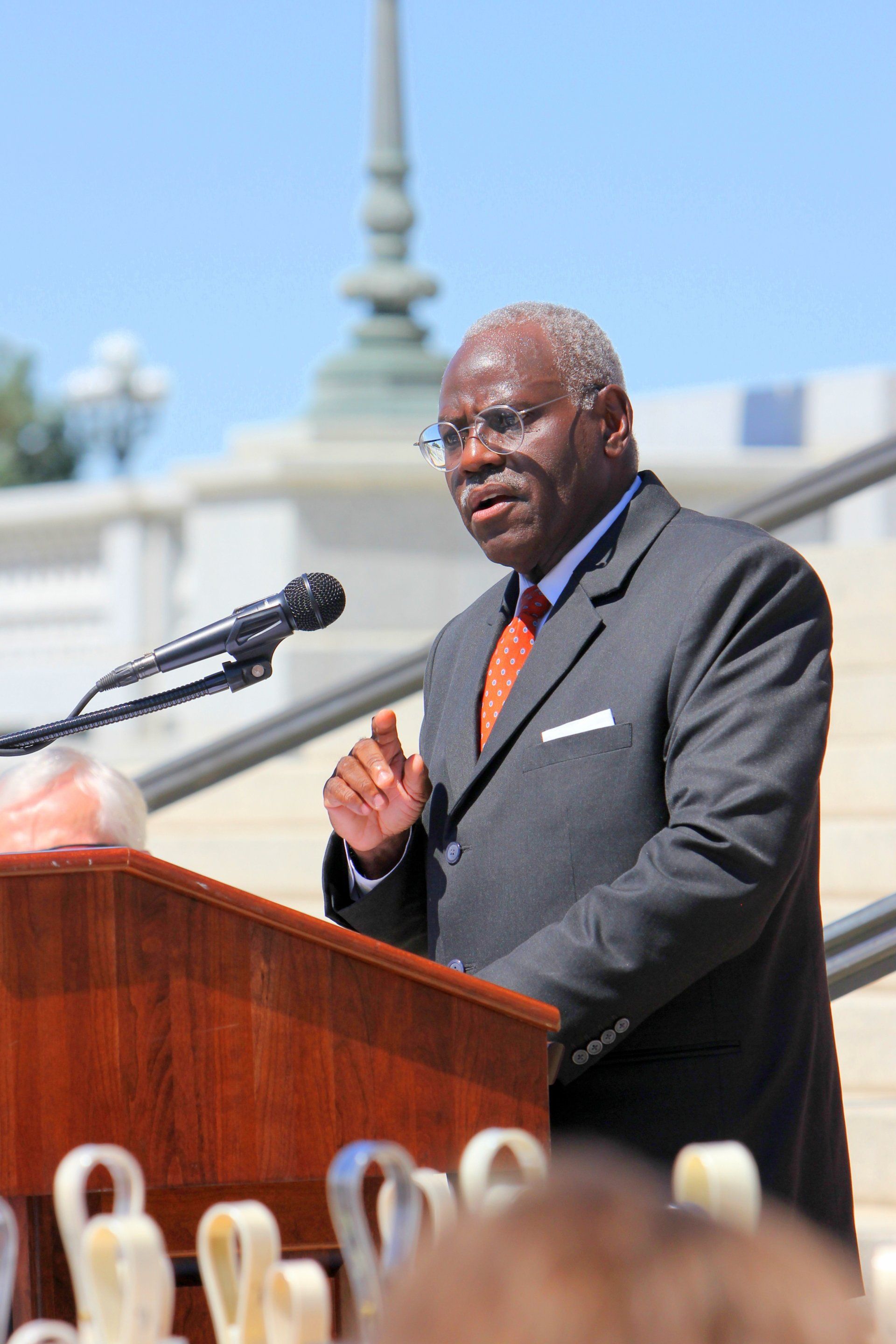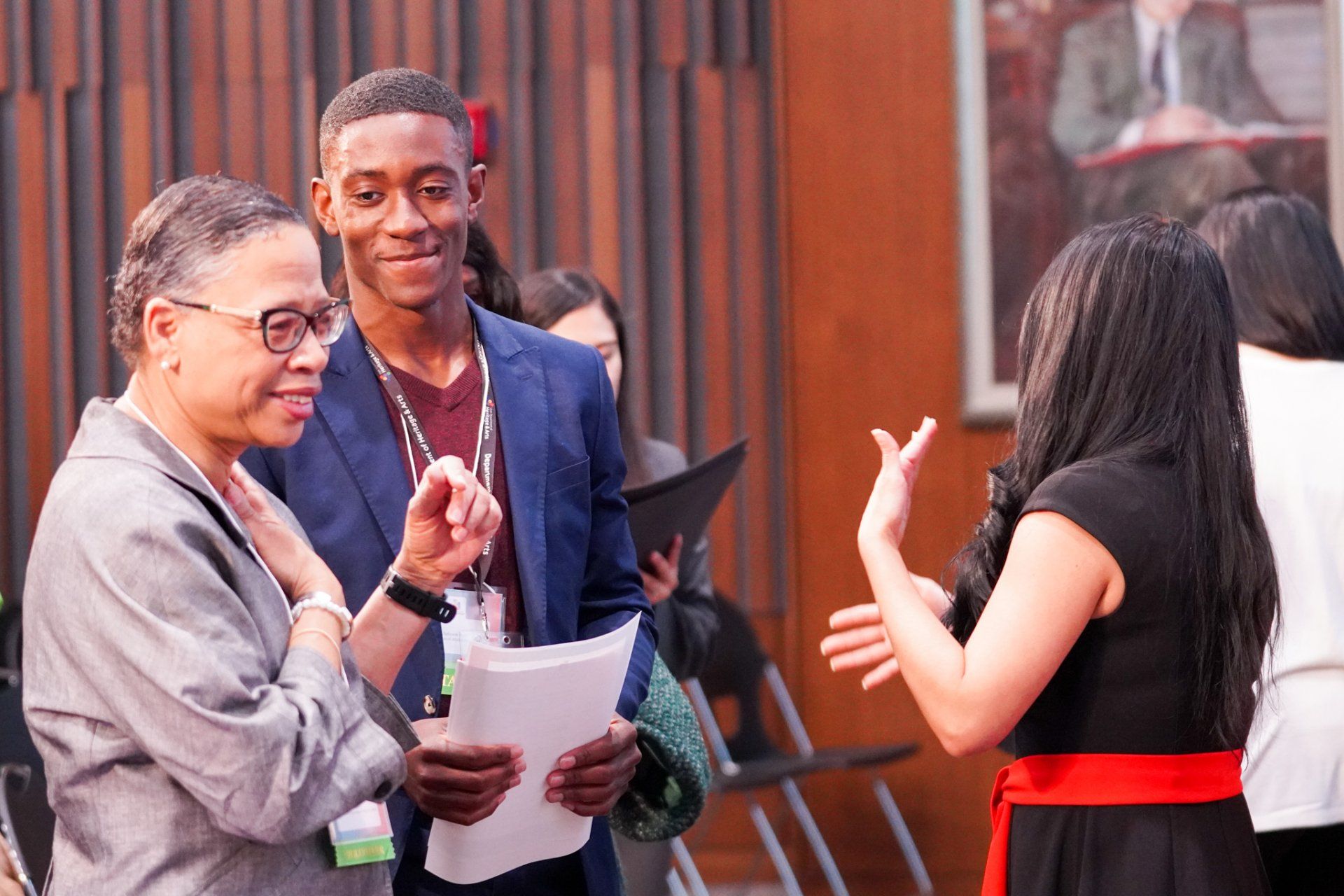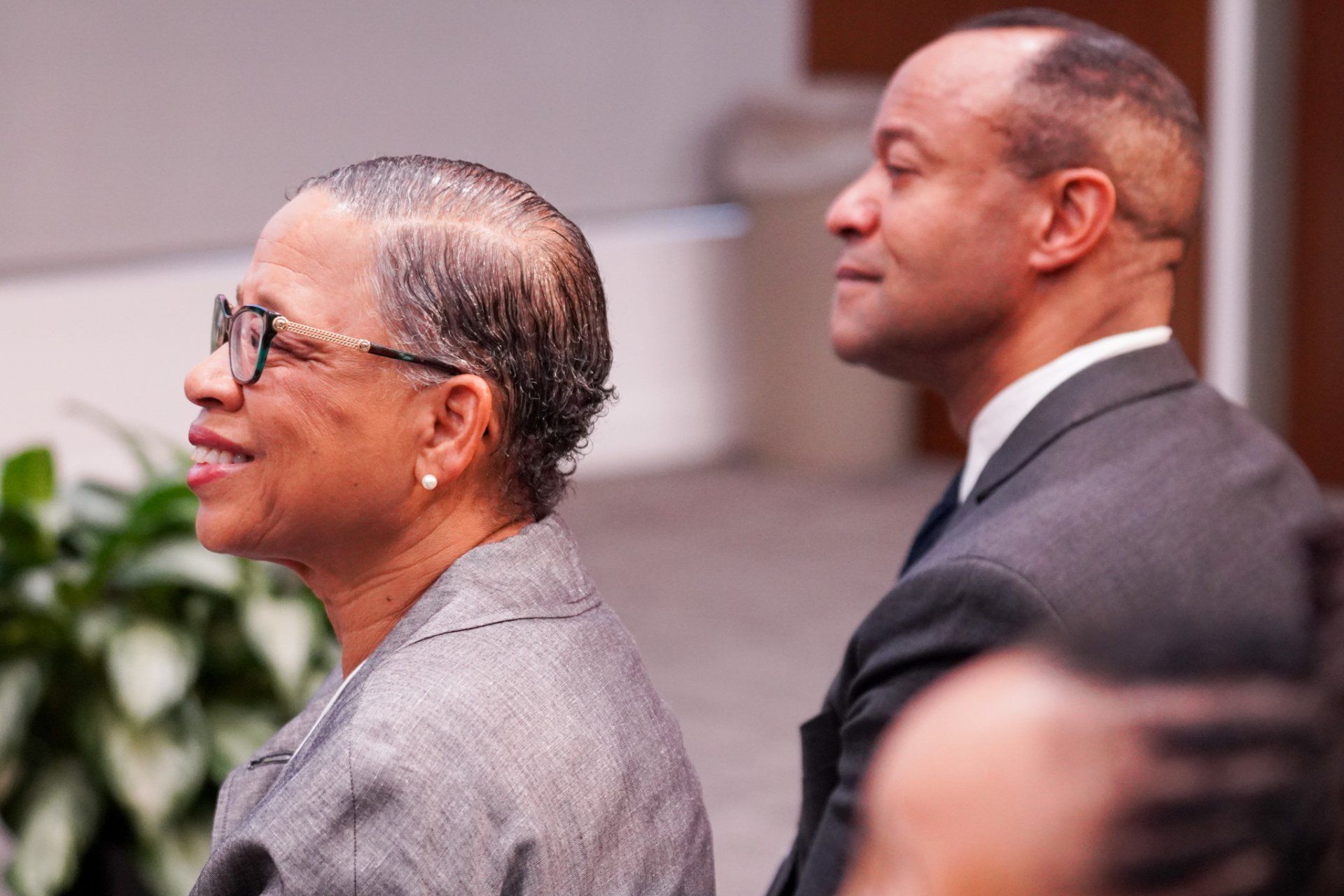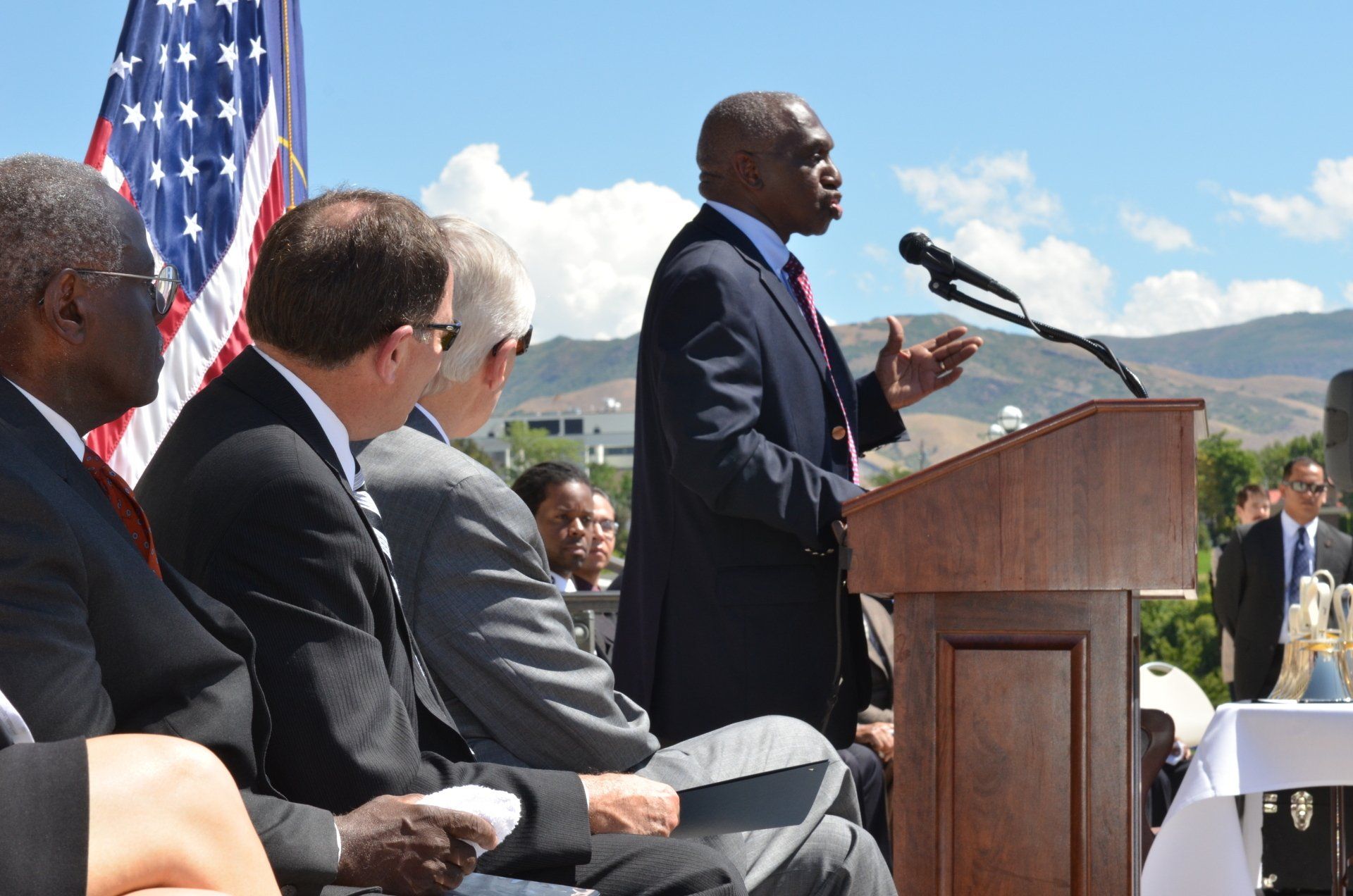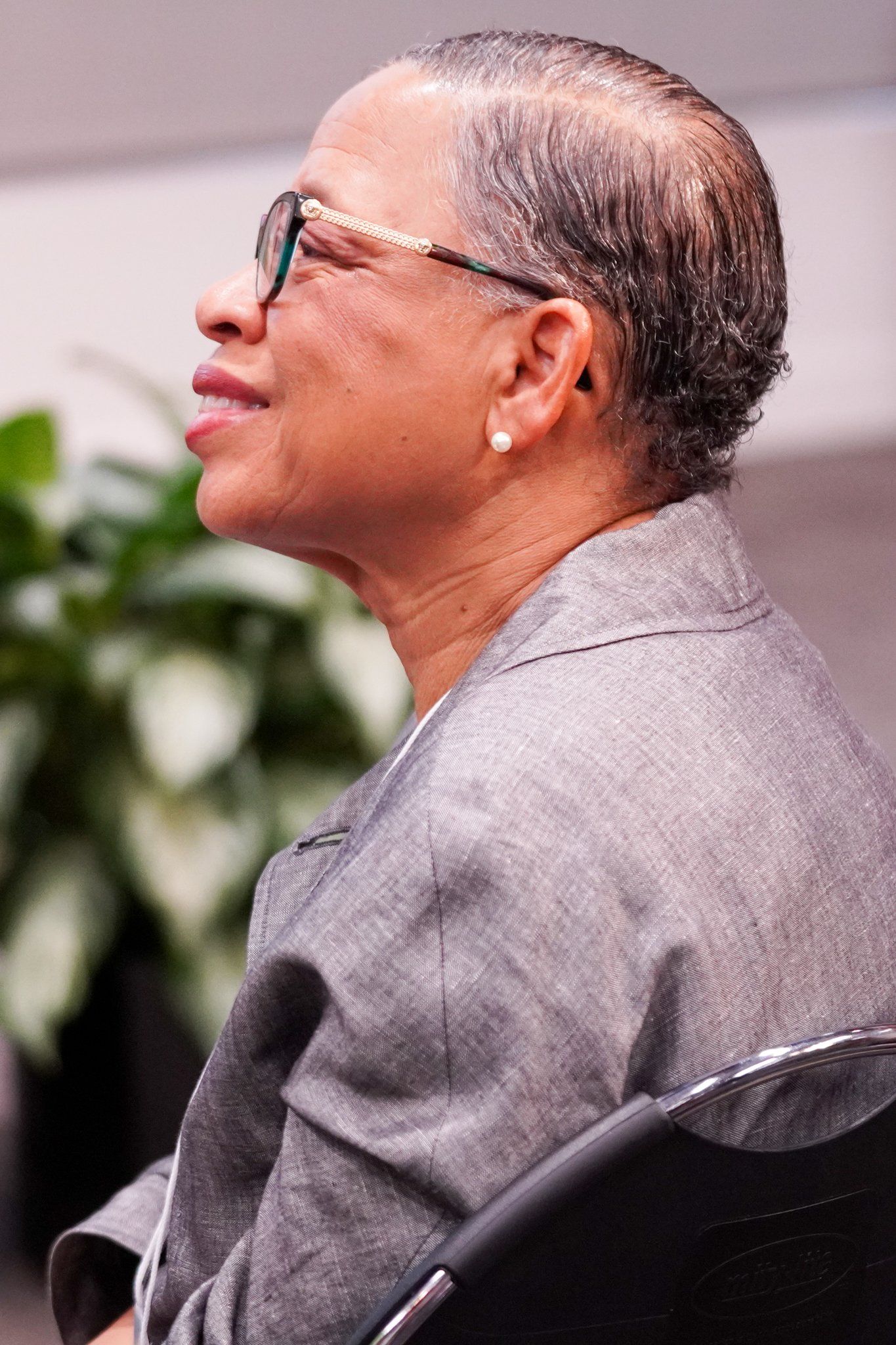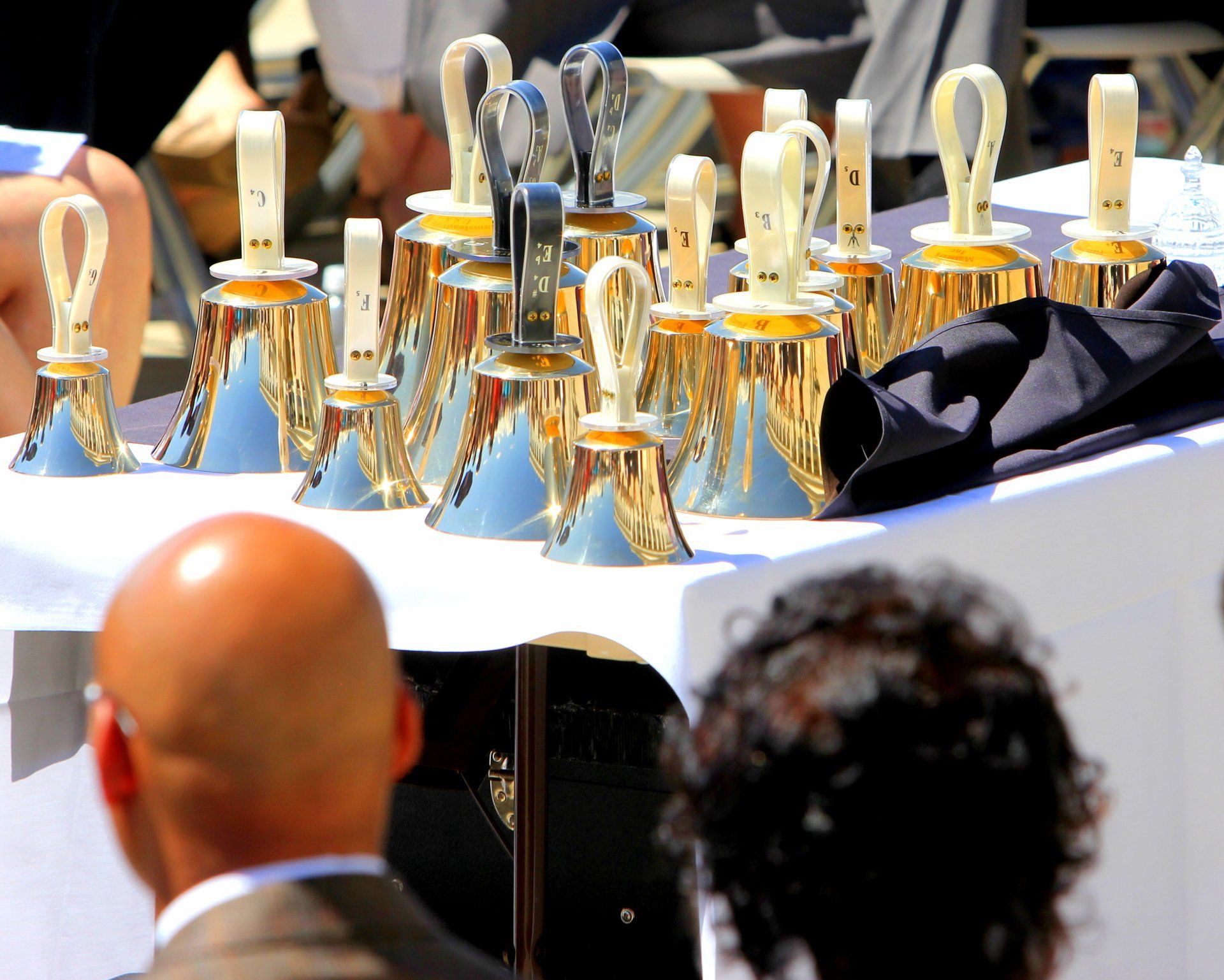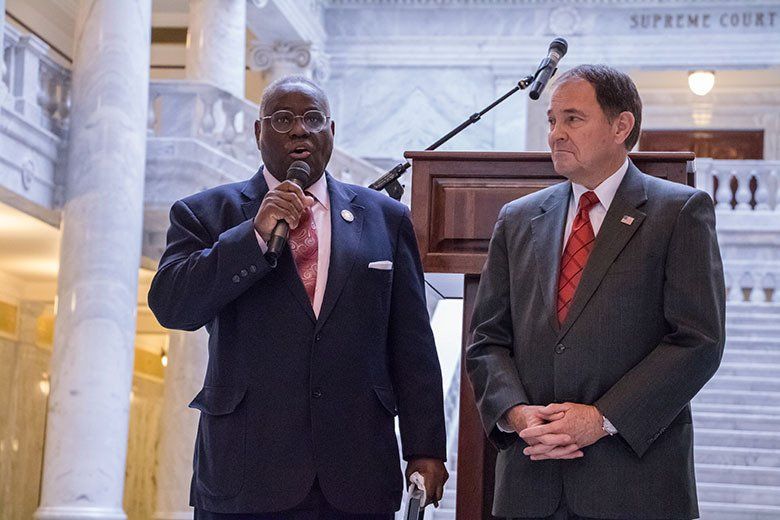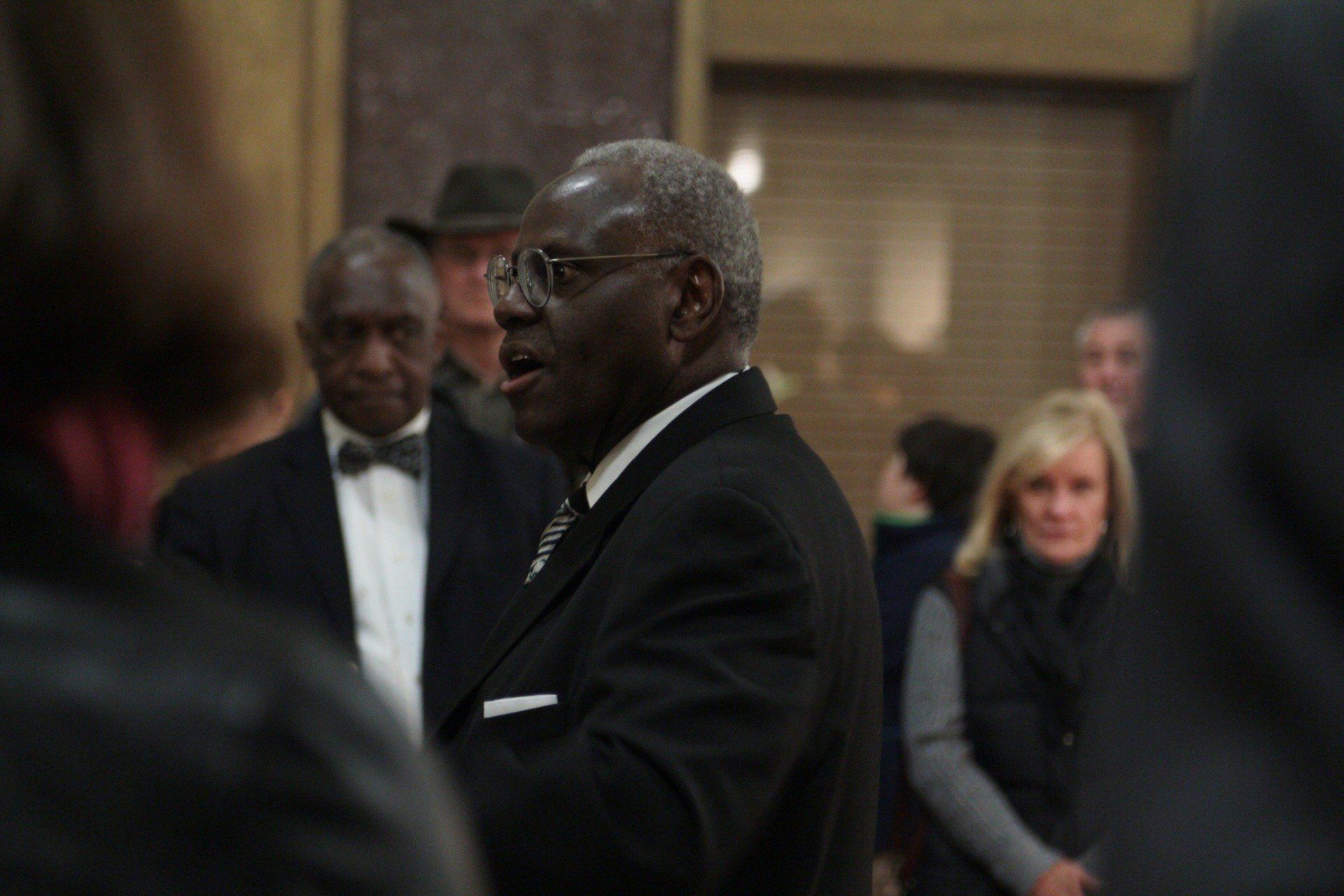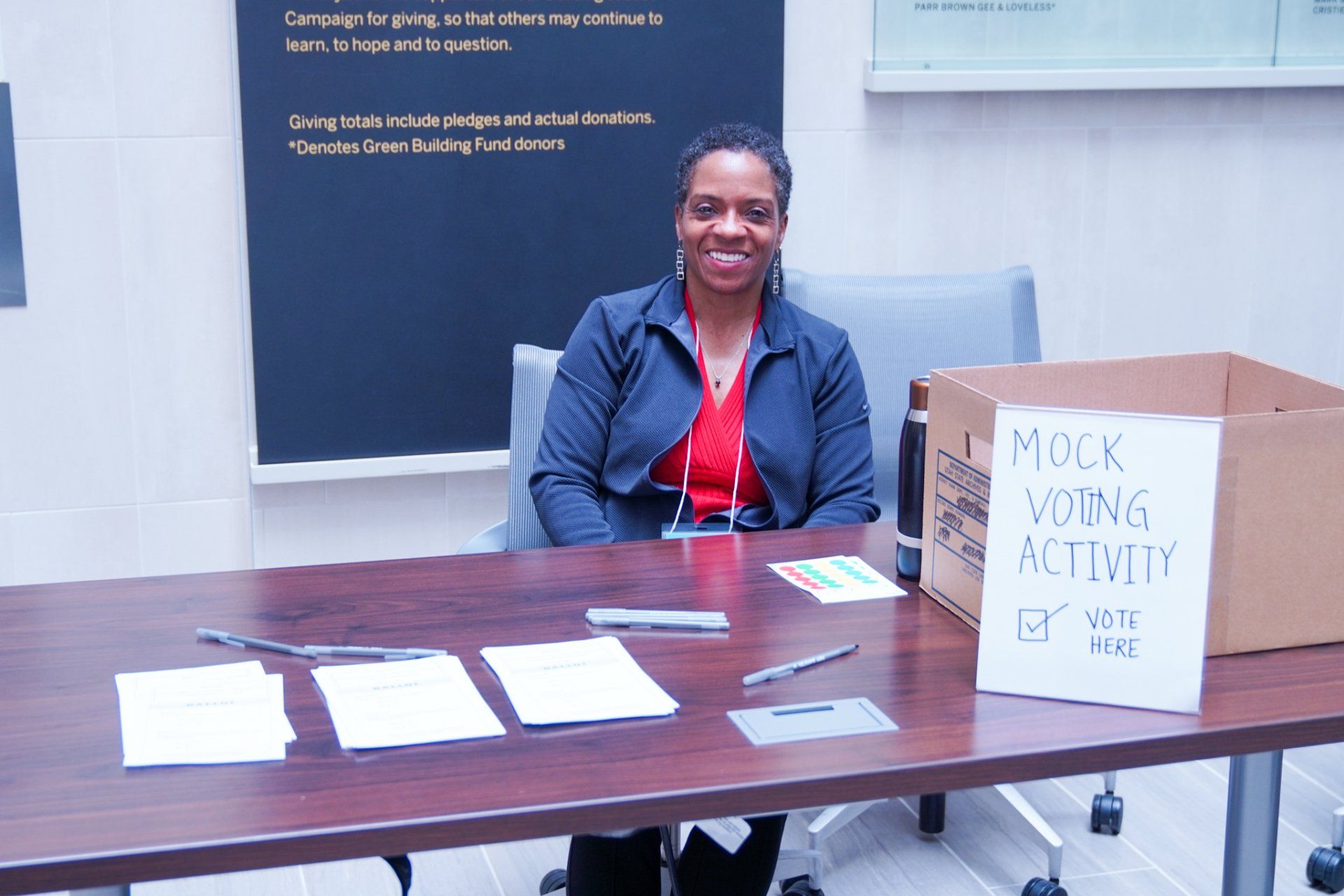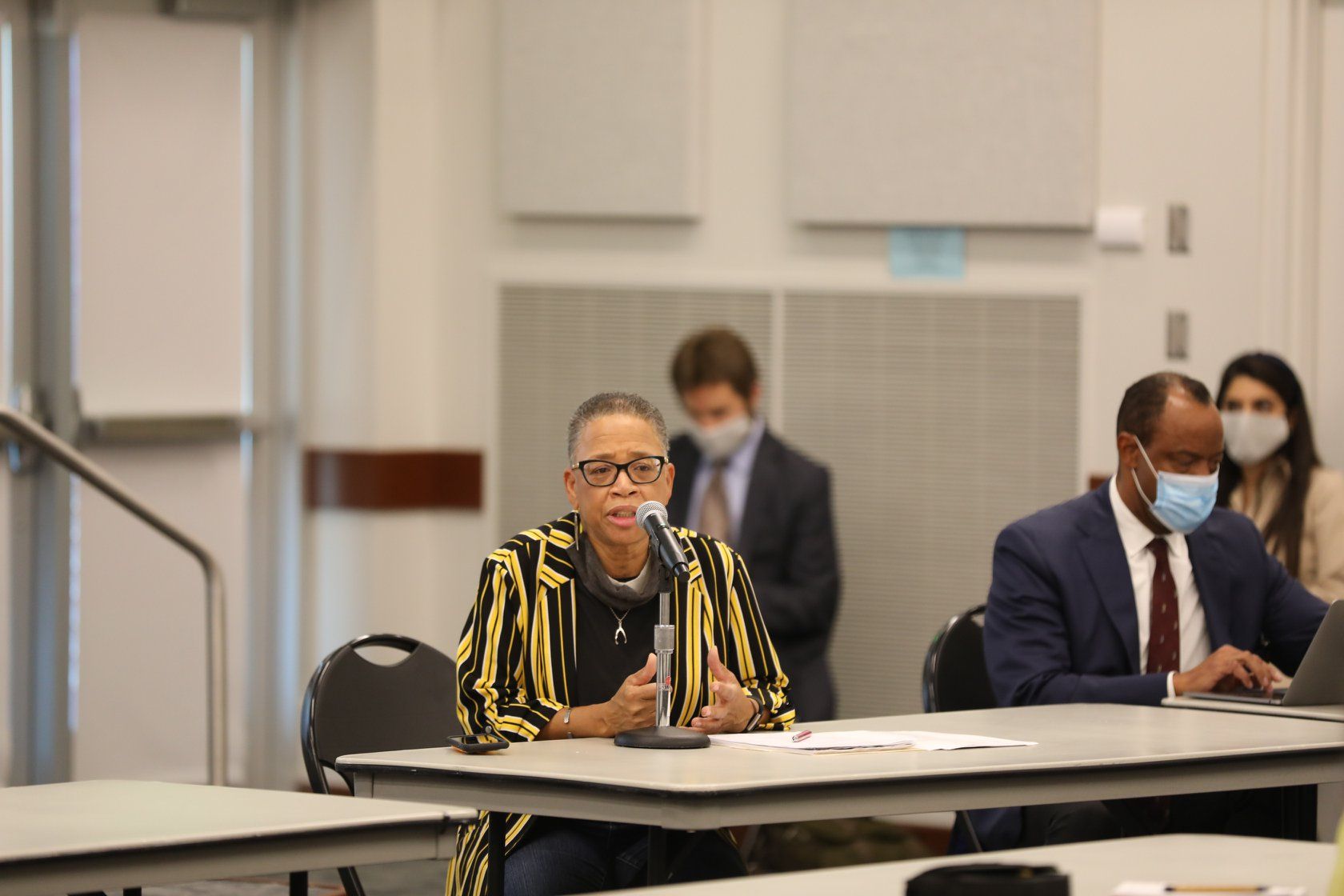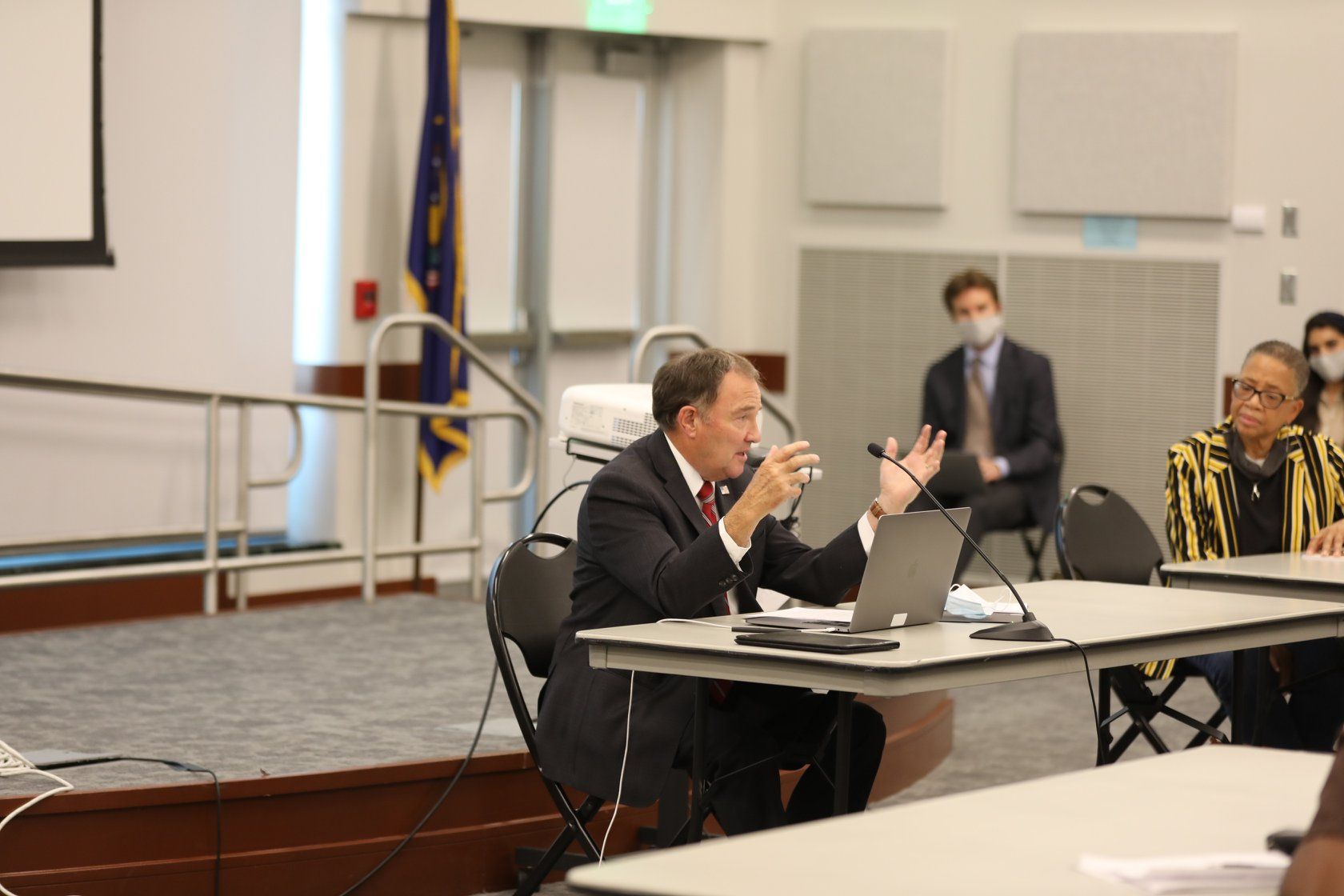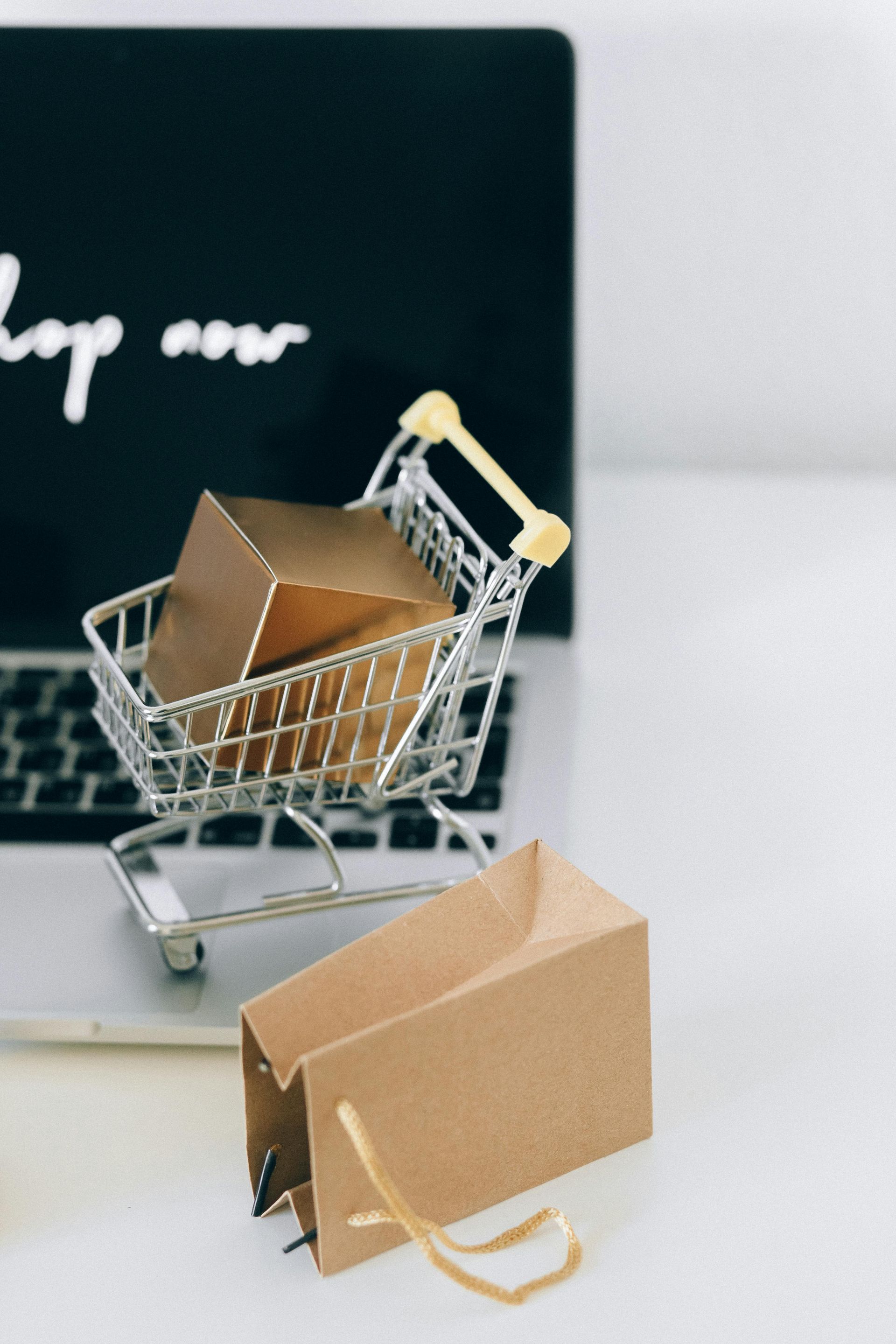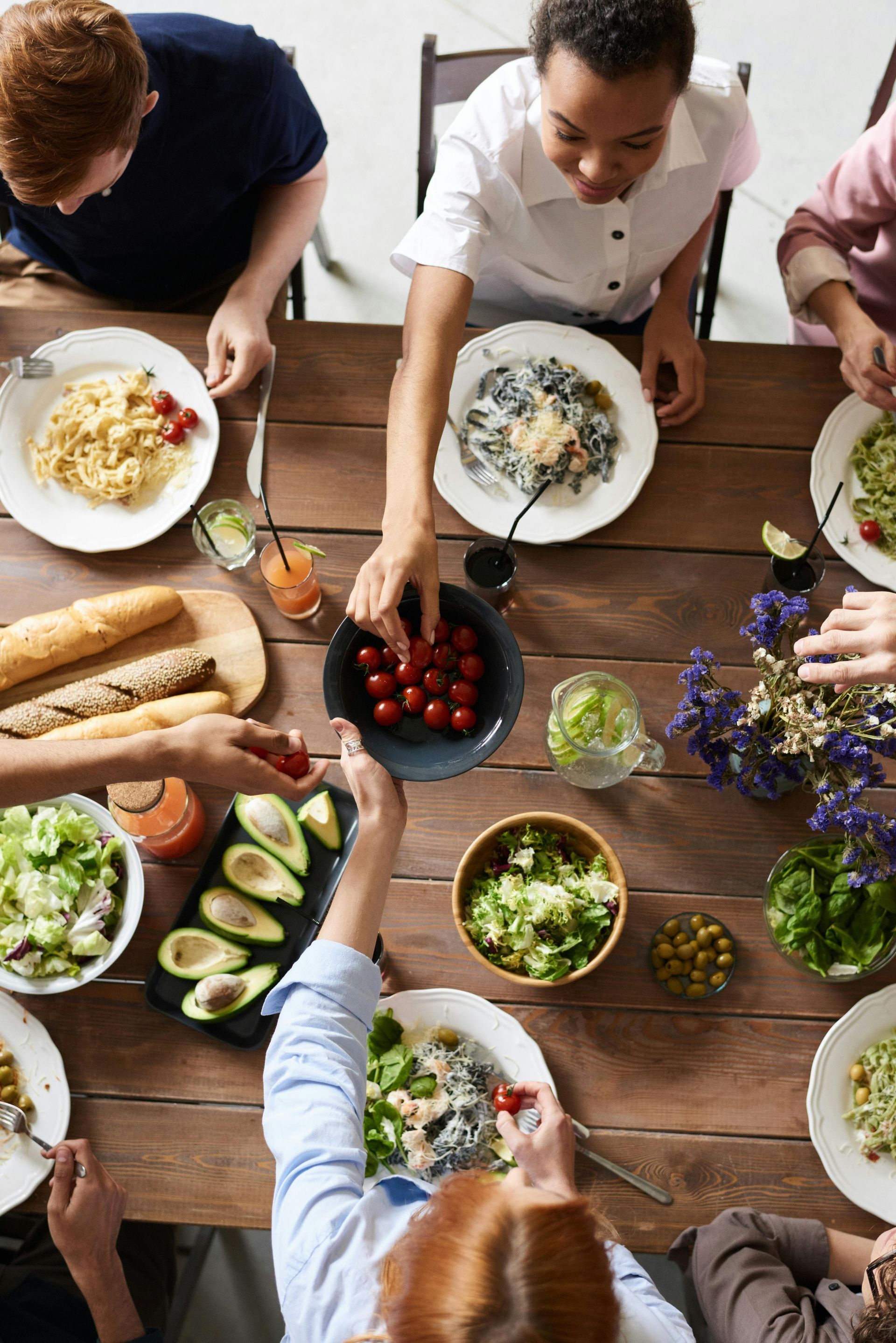MLK Decal Contest for the Utah MLK Human Rights Commission
This week we meet Eddy Thompson, Utah MLK Human Rights Commission Member. The Utah MLK Human Rights Commission is running a contest to choose the official state decal of the Dr. Martin Luther King Jr. License Plate. It will have the contest winner’s artwork and the accompanying slogan, “Many Voices. One Utah.” The selected artwork will promote diversity, equity and human rights. Let’s go meet Eddy and learn about the commission, the contest and Eddy’s own story.
CONTEST DETAILS TO ENTER ARTWORK FOR THE DECAL PLATE CONTEST: https://multicultural.utah.gov/mlk/license-plate/
"Dr. Martin Luther King Jr. summoned the best qualities that have guided and sustained the American spirit while strengthening our nation's commitment of equality, justice, freedom, and peace. He awakened the necessary goodness of all people and led a nonviolent movement that enriched our moral purpose as a nation. Dr. Martin Luther King Jr. raised the consciousness of our country through his personal dream where all people are judged not by the color of their skin, but by the content of their character. I believe this license plate will show that we are about the content of one's character, and not the color of one's skin. This license plate will show our nation that Utah is committed to equality, freedom, justice and peace!" - Eddy Thompson Get more information about the Commission and Decal Contest here - https://multicultural.utah.gov/mlk/
Facebook Page - https://www.facebook.com/MLKUtah
Trista's PL8STORY Podcast Links
Nominate a plate - https://www.pl8story.com
Meet your host - https://www.iwokeupawesome.com
Subscribe to Trista's PL8STORY Podcast on Apple Podcast (http://bit.ly/itunespl8story), Google Podcast, Spotify or your favorite podcast app and access all published episodes
Episode Transcript available at www.iwokeupawesome.com blog post
Dr. Kings principles of Nonviolence added.
1. Nonviolence is a way of life for courageous people.
• It is active nonviolent resistance to evil.
• It is assertive spiritually, mentally, and emotionally.
• It is always persuading the opponent of the justice of your cause.
2. Nonviolence seeks to win friendship and understanding.
• The end result of nonviolence is redemption and reconciliation.
• The purpose of nonviolence is the creation of the Beloved Community.
3. Nonviolence seeks to defeat injustice, not people.
• Nonviolence holds that evildoers are also victims.
4. Nonviolence holds that voluntary suffering can educate and transform.
• Nonviolence willingly accepts the consequences of its acts.
• Nonviolence accepts suffering without retaliation.
• Nonviolence accepts violence if necessary, but will never inflict it.
• Unearned suffering is redemptive and has tremendous educational and transforming possibilities.
• Suffering can have the power to convert the enemy when reason fails.
5. Nonviolence chooses love instead of hate.
• Nonviolence resists violence of the spirit as well as of the body.
• Nonviolent love gives willingly, knowing that the return might be hostility.
• Nonviolent love is active, not passive. • Nonviolent love does not sink to the level of the hater.
• Love for the enemy is how we demonstrate love for ourselves.
• Love restores community and resists injustice.
• Nonviolence recognizes the fact that all life is interrelated.
6. Nonviolence believes that the universe is on the side of justice.
• The nonviolent resister has deep faith that justice will eventually win.
Plate 50 Episode Transcript:
MLK-DECAL-Contest-Utah
[00:00:00]Trista, Host: [00:00:00] Welcome to this week's episode of Trista's PL8STORY (Plate Story) Podcast. I'm Trista Polo from iwokeupawesome.com and I am your host. Each week, we learn the story behind that vanity plate. You know, the one you saw driving down the road... what did it say? What did it mean? Why did they choose it?
This week we meet Eddy Thompson, Utah MLK Human Rights Commission member. The Utah MLK Human Rights Commission is running a contest to choose the official state decal for the Dr. Martin Luther King Jr license plate in Utah. It will have the contest winners artwork and the accompanying slogan, "Many Voices, One Utah."
The selected artwork will promote diversity, equality and human rights. Let's go meet Eddie and learn about the commission, the contest. And Eddie's own story.
I am super excited to have Eddy Thompson with us today. He is from Salt [00:01:00] Lake Utah, and this is a different and special episode, which it's my podcast, so I can do whatever I want. I was on the internet and I noticed that there was a competition to create a new decal for a Martin Luther King Jr plate.
And Eddy is part of the Commission that's running that contest in Utah.
Eddy Thompson: [00:01:21] Welcome. Thank you for having me.
Trista, Host: [00:01:23] Yeah. Yeah. And normally where we started off is with the story behind the vanity plate. I checked in Eddy doesn't have a vanity plate, but it's okay because we're going to talk about the commission and the contest.
So tell us first, what is the commission and how was it started? Give us a little bit of background and history. Sure.
So the, the commission was, Eddy Thompson: [00:01:45] built by Governor Herbert, here in Utah. He's been governor for some years now and he decided he wanted a Martin Luther King Human Rights Commission and a Multicultural Commission.
So those commissions are both a voluntary base and [00:02:00] they report up to him.
Trista, Host: [00:02:02] Awesome. How old is the commission.
Eddy Thompson: [00:02:07] I want to, I want to say it might be 15, 20 years old. I don't know the exact date and time, but we've had many members come through and what we do is we have a tenure, so I believe it's a, every two year tenure.
And then we rotate members.
Trista, Host: [00:02:23] How does it work to be on the commission?
Eddy Thompson: [00:02:25] Yes, ma'am by appointment. And so that it has to go back to the governor and then he appoints he's he, he reviews the resumes and appoints those commissioners.
What's great about it is it ties the community together. We have a wide range of race and diversity within our commission. And so we try to cover as much as we can to cover the whole state of Utah.
That's
Trista, Host: [00:02:49] How did you end up as part of the commission?
Eddy Thompson: [00:02:51] So my mom was a part of the Multicultural Commission and about four years ago, my mom and I spoke at an event at one of the, [00:03:00] youth summits that this commission put together.
And I guess they liked me enough to say, Hey, we got to get this guy on here. So, my mom was, heavy into diversity. she's a diversity coordinator for the state of Utah. So she would go around to different schools, talking to different schools and promoting diversity as well as heavily different issues that came up between different races and whatnot.
Trista, Host: [00:03:23] Wow. That's great because this is really needed in Utah, as I understand it. What do you see as the challenges that you have to overcome to really get the word of diversity out
Eddy Thompson: [00:03:33] there?
So if I may take a step back, I want to take you back, back in my high school days, I used to coach basketball, for a small school and we would have to go around the, the state and see small towns and small rural replaces.
And it was interesting to see how people responded to us. We had a primarily black African-American team. We had some Hispanic folks, we had some Caucasian folks on the team. [00:04:00] Our head coach was six foot nine and he was African-American and he just obviously stood out. And so it was interesting for, at least from my tenure of about eight years, to see some of the challenges that came up just by, just by being, just by being essentially, just by traveling and, you know, we had all types of different altercations and situations that were unfathomable for, to be, or to in, in, in the two thousands.
So, you know, one of the challenges that we fight today is just ignorance. People, not understanding different cultures, people who have being intolerant of different cultures. And I'm excited. One of the other initiatives that we just worked with our governor on governor Herbert on, he just passed this yesterday, but it's a anti-racism pact and this anti-racism pact has five different, topics to identify racism, invest in [00:05:00] communities that, you know, that have to deal with racism, being an advocate. And it just goes through this process of things that you can to consider, as we are dealing with racism on a day-to-day basis, and it comes in different shapes and forms, As, as we've seen as I've witnessed experience.
And so, I'm just proud of governor Herbert for taking a step to try to do something, to erase racism.
Especially with the situation that George Floyd this last summer, he said, we, we gotta do something. I, you know, and he, this was his final year.
This, this is his final year as the governor. He's stepping down after this year, he said, look, I'm tired of dealing with, I'm tired of seeing these issues arise. What can we do to make a statement? What can we do to affect change? And what, the first thing that he did was he sat down and he met with us. we had probably 20, 20 to 30 people in the [00:06:00] room, different community activists and community voices.
And he actually pushed one of, he was supposed to meet with, he was only supposed to meet with us for about an hour and a half. And then he was supposed to actually meet with vice president Pence and he ended up pushing that, off it, so he can continue to listen to us. So just like in the pact, the first action is to acknowledge and to listen, and that's exactly what he did and, you know, just trying to build something, to acknowledge it.
And he's, I'm sure he's getting pushback, but I think what he's doing is the right thing. And at the end of the day, that's all that really matters is trying to do the right thing.
Trista, Host: [00:06:41] Now you're part of the Martin Luther King Jr. Human Rights Commission specifically. Right. I'd love to hear what your first memory is of Dr. King.
Eddy Thompson: [00:06:54] So, as I mentioned, my, my mother was a, diversity coordinator. And so what she would [00:07:00] do, every summer during, you know, when I was a little kid, she would have me do book reports and, you know, while other kids are playing and having fun, stuck inside, reading reports and learning about my history.
But what it did was it gave me a sense of who I am and how far my ancestors came. and so, you know, Dr. King was one of the first books that I read. She had a whole series of these books, around a hundred pages or so giving you the high level, this is what happened. This is their life, and this is what they fought for.
And this is what, you know, that sort of thing. And so, you know, for me, Dr. King, he, he was a visionary, you know, when you have a vision, you can second guess that you don't even know sometimes what, how that vision is going to come together. But he just kept working at it. he was a public enemy of America, you know, the FBI was trying to keep tabs on him and things of that nature, what he embodied was being, bringing people together.
[00:08:00] So when I got the opportunity to jump on this commission, I just kind of jumped all over it because I saw what their vision was. Their vision is, you know, six principles of non-violence. which are from Dr. Martin Luther King. their vision is a to keep his holiday going to, you know, try to create celebrations, but also in most, in a lot of ways, most importantly, We want to encourage critical conversations on race.
We want to give racial conversation as a space, the correct space, and even that's difficult, you got to get the right people in the room. You want to make sure that, it's respectful. And that people were able to feel like they're listened to. Sometimes we don't even have the solutions, but as long as they're able to say what they want to say, that's just important right there.
And so, you know, it's, it's been, it's been a fun ride. I've been on this commission now for four years and it's been a fun ride dealing with some of the challenges that we've had, but [00:09:00] also create the space to have conversations on policing, on social advocacy. we've had some challenges with racism in different ways with our history. We had a thing called the Negro Bill Canyon that we tried to get that main chain help, try to get that name change here in Utah. And so all these different things that come up, we try to assist as much as we can. And I think we've done a pretty solid job considering that we're volunteering our time.
And so, so we just do the best that we can. Yeah.
And it's great work that you're doing. I would love for you to share the six principles of nonviolence.
Okay. So the six principles of nonviolence, one nonviolence is a way of life for courageous people.
Number two, nonviolence seeks to win friendship and understanding. Number three, nonviolence seeks to defeat and justice, not people. Number four, nonviolence [00:10:00] holds that not voluntary suffering can educate and transform. And then number five, nonviolence chooses love instead of hate.
And then number six, non-violence believes that the universe is on the side of justice.
Trista, Host: [00:10:16] Awesome. Thank you for sharing those. Do you have one, that's your favorite that you specifically live by more than the others?
Eddy Thompson: [00:10:23] I would say number two, nonviolence seeks to win friendship and understanding. And I think, you know, in, in some of the challenges and things that we dealt with as commission, that's been one of the things that stuck out is.
You know, as people see what we're doing as we unite together. because this is not just the black and white thing, there's Native Americans. There's so many other groups that are disenfranchised that are feeling left out. And as you talk to people, you see that a lot of the challenges are similar. And so, it's been, it's been exciting to work with different people and to find [00:11:00] common solutions that can apply across the board.
Trista, Host: [00:11:03] Awesome. That's really great. Now let's talk about the contest. you have. You're getting a decal that will be adopted that people can choose as their license plate. Tell us a little bit about that and the journey behind them.
Eddy Thompson: [00:11:18] So about 10 years, at least at least 10 years ago or commission, they decided we want to do this license plate. We want to, promote what Dr. King's vision was about around this state specifically, and, you know, to promote Goodwill, to show that we are on the cutting edge of, you know, doing, social justice doing, just being, being more inclusive and diverse in this state. And so, you know, they, we had several members that tried to bring this to fruition for at least 10 years. the challenges that we had where we needed 500 signatures upfront. And we needed [00:12:00] their, their funds going to the license plate upfront. So as you can imagine, that's a huge challenge.
so, you know, we, we worked for years and even when I came on board, we kind of worked to get signatures, but it was always kind of just, we were always a couple steps behind, or sometimes the goals changed or the rules changed. This year, this past year Representative Sondra Hollins.... she took it upon herself to get this into the state legislation and get it passed in a way that we didn't need to require signatures.
We just needed the funds upfront. Once she did that, that allowed us to just specifically work solely work on the funds. And, ensure that, you know, everything would do the legislation appropriately. she allowed us to come up with her, speak to, the actual license plate. What it, what it would do.
My understanding is that in the past, it probably wouldn't have gone through that way. [00:13:00] but cause she stood forward her and representative (?) , our commissioner was able to get this approved. And so now, in November, we were able to, open up an art contest. Now this art competition, we're so excited about it.
It's going to be for seventh through 12th graders. we wanted. Again, we want it to promote and encourage our young people to take part in this process. And so, like I said, from November 5th, through December 31st, anyone in seventh through 12th grade can submit the art logo for all of Utah for this license plate.
Trista, Host: [00:13:40] And it's for Utah Residents?
Eddy Thompson: [00:13:42] Yes. Ma'am yep. again, seventh through 12th grade. and we want, I'm excited. We want them to shape what this is and what, you know, what diversity looks like. in this case, we couldn't use the likeness of Dr. Martin Luther King.
So now you have to become more [00:14:00] creative in how you create what this looks like. so we're very excited to see what our young people come up with. the eight finalists. we're going to whittle it down to eight finalists, and then we'll have a final list out of that group .
We're working with the Utah jazz right now. We meet with them tomorrow. We're working with them. We're excited to see how we're going to entail, the license plate logo and recognize that we're.
Wow, that's really great. That's really great. And I love that you chose children. So that they could express and have this be part of their conversation. Now COVID has created some challenges for you, right? With this contest.
Yes
it has. In the past, usually what would happen is you send it to the school districts and, you know, they'll post it at their schools and they'll, you know, parent, you know, teachers will tell the kids, Hey, you need to try this. And, we even talked to, as we were going into this process, we talked to a Representative that created a flag for the state of Utah.
And [00:15:00] they essentially went through the same process and helped us with setting up our process. So, they were telling us they receive something like that. You know, several thousand, submissions, in our case were less than that. And we had to stand our deadline because, you know, we, the message wasn't quite getting out or, you know, there's so much on people's plates right now that they, they just, you know, just don't have the time. And so we ended up extending our deadline.
Trista, Host: [00:15:27] Now you have, children and at least one of them is an entrant into this contest.
Can you tell me a little about there? It's your daughter?
Eddy Thompson: [00:15:35] My oldest daughter. She is in seventh grade. And so I told her don't let me look at it. Like, no, I don't want to see it. Matter of fact, we're not to pull up the grading criteria and things of that nature. We're not even going to look at names. It's just going to be, you know, let the graphics stand on its merit.
Trista, Host: [00:15:54] Oh, that's great. Yeah.
Eddy Thompson: [00:15:55] I think the graphics going to tell us the graphic in our [00:16:00] opinion will tell us exactly what we think we're looking for
Trista, Host: [00:16:04] That's awesome.
Yeah. Like I had mentioned earlier, you know, Dr. King has his dreams, his vision, which you don't fully know how it connects.
Eddy Thompson: [00:16:13] And once we see the graphic, I think. I have a feeling that it's going to, it's going to shape what it should be. So,
Trista, Host: [00:16:21] So I'd love to hear some details about if you're a Utah resident, you have children in the right age group. How do they go about putting an entry in, you know, making a submission? What's the process.
Eddy Thompson: [00:16:34] So the process is, we want it in digital format. the size is going to be 3.875 inches by 3.25 inches. it can only have a maximum of six colors. the original design must be based on human rights and due to the copyright laws, any images or lightness of Dr. King is not allowed. and then we have a website, that you can submit the art to.
And [00:17:00] again, that is due by December 31st. That's when the window closes. And then from there, we'll go into the grading process. Our goal is to, Acknowledged the winner around Dr. Martin Luther King day.
Trista, Host: [00:17:12] Perfect. Which is in January, right?
Eddy Thompson: [00:17:15] Yeah. Yes. Ma'am I believe it's the 19th. Okay.
So with your extended deadline, you've given yourselves a little, a tighter turn time.
Trista, Host: [00:17:24] Exactly.
Awesome. And Utah Jazz is part of this in some way, they're a sponsor they're helping you promote it. What's
Eddy Thompson: [00:17:34] there. The sponsored we, what we did was we asked several community partners to sponsor with us. So our sponsors, our Comcast Goldman Sachs STEM action center and the Utah jazz.
We're really excited, thankful for the Utah jazz for their partnership over the years.
Trista, Host: [00:17:53] That's great. Thank you for all the work you're doing. are there any other ways you'd like to share that this topic [00:18:00] and this advocacy has affected you personally,
personally. Eddy Thompson: [00:18:05] it's been great to meet different people. start working with them, as we talked about Utah, not the greatest place for diversity in the world, but at the same time it's growing, we have a lot of people moving in and so people are trying to figure out things to do, We we have, actually I have an African and a black chamber of commerce, but headed by James Jackson.
And he's doing a wonderful job of bringing people together and pulling in contact points so that, you know, if I need to come in to Utah, I need to get my hair cut down and go to a salon. He's pulling those activities together, so that folks can have a one-stop place to find these activities and these, you know, restaurants and things of that nature.
so that's probably one of the high levels for me, just working with people, identifying issues that maybe I wasn't aware of. And trying to find solutions and ways that we [00:19:00] can, pull community, get together and to support our governor has been phenomenal in his support of, you know, interests that, you know, he might not be so much aware of, but he's, he's definitely focused and listening on trying to find solutions, our, our police in Utah, you know, they're, they're trying to come together to be more preventative than reactionary. And that's a challenge within itself. We've, we've met with our police officers multiple times. We have different what we call, King conversations with them, in order to bring the community together with these leaders and have that voice and have that response and listened to time. So we can bring these challenges that sometimes just get pushed aside. To the forefront and try to do something about it. It doesn't always work, but at least we're trying to acknowledge those things and trying to bridge the gap.
But it's just been a phenomenal experience working with each individual member that's been on this commission and [00:20:00] with other commissions, because there's a wealth of knowledge there. There's a wealth of experience there. And. You know, just you being able to use your voice to try to affect change. And these folks are so supportive and they're willing to take time out of their very, very busy schedules in order to help and assist and to, to work on these initiatives.
Trista, Host: [00:20:23] all areas of the community, work together is crucial. You can't do it all by yourselves. It's it's a huge undertaking. It's amazing to me how long it's taking, you know, you said that your mom made you read books when you were a kid.
Mine did the same thing. I read animal farm, like way before I should have. but one of my earliest collection was the Abraham Lincoln collection. It was like four books and his face was on the, like drawn over the four booke ends . And [00:21:00] I read that series over and over and over again.
And it's just amazing to me how we're not further along this many years later.
Eddy Thompson: [00:21:12] Yeah, I think, I think one of the things that we have to do is acknowledge the progress, right?
And so, you know, things were, are much different for me than they were for my parents. My dad was, raised in Mississippi. He picked cotton. they lived on a farm and, you know, even when he was five years old, they had to pick cotton. So he had a certain poundage that he had to pick.
The story of my grandmother, she had a third grade education. My grandpa had pretty much no education. And my grandpa had a, he had a, he cut his arm off in a cotton gin. And so, you know, he was very limited on what he could do to begin with. But at the same time, you know, my grandma pretty much forced her family to, to get out of Mississippi because she understood the lack of opportunities.
[00:22:00] She had I want to say it was nine kids. And she, she knew that they weren't going to get ahead in life, dealing with the situations that they were dealing with. And so she took it upon herself to move her family out to California, just to get them through high school. Like, if you can just get through high school, that's great. And fortunately, several of them ended up going on to college. My dad ended up going to Idaho state and playing basketball, the, where he met my mom, but just that story alone for me shows me how far we've come, but
Trista, Host: [00:22:33] right.
Eddy Thompson: [00:22:34] But at the same time, you know, there's still a lot of work. We work, I've worked with a school, just down the street from it, for me in Salt Lake an underprivileged school.
And, you know, just with COVID coming up the lady at the school was telling us, look, we don't have iPads for our kids. or our computers are out of date. And, you know, when you look up to East Salt Lake, which is more afluent and things of that nature, they're [00:23:00] getting iPads, you know, to, to their schools and whatnot.
I can sympathize with that because my kids are able to be on the East side of, in Salt Lake and go to school there. And they're given iPads, and, and all the resources needed. But this school right down the street for me to say, I mean, we had no resources, so we were able to raise some money for them, to get some resources, at least get them started to get their kids, so their kids are not falling too far behind. Although they probably already are slightly behind sure. due to COVID. So, so it's, it's, the challenges are still there and challenges in education, the challenges in, in, in medical, the challenges in imprisonment, they're all still there and it's, it's just slightly different, in some cases. Again, some things better than they used to be, but we still have a ways to go. And that's what we're fighting for. Just. Not even better than it's just getting to equal. We're [00:24:00] not even talking about, you know, front of the bus. It's, it's just equal opportunity.
So, I mean, that's, that's just one of the things, many of the things that we've talked with our governor about, addressing is, you know, these are kind of the four or five different topics that we need help with, we need to work on this
and you're in the right direction. You're in the conversation, you're bringing it to light and that's when change happens.
Exactly change doesn't happen by sitting back and watching change happens by standing up and speaking for fighting for, and in some cases protesting. So that's what we're trying to do. We're trying to encourage the community to come together and in many of our. Our partners, as we mentioned before, they've stepped up to the challenge and we're hoping that with governor Herbert's, com pact and Cyrus com pact, that that will also, promote and help other companies and people, individuals step up to the [00:25:00] challenge of trying to just simply try to make things better for people.
That's all we're trying to do, make things better for people. We're just trying to make it equal. Just same opportunities as pop as much as possible.
Trista, Host: [00:25:13] Yeah, absolutely. For sure. So, I want to thank you so much for being on.
I enjoyed hearing about what you're doing to raise awareness and make change. And, I'd love to just turn the tables. This is what I always do. And ask, if you have one question you'd like to ask me. So do you have a question?
Eddy Thompson: [00:25:35] Thank you again.
Thank you for having me. my question is what has been your favorite license plate?
Trista, Host: [00:25:43] There's a lot. I have, I have 49 already in my, in my series, which is pretty awesome. So I, I, I'm not sure what my favorite plate is, but I will tell you that my favorite thing [00:26:00] is learning about what's behind the eyes of the plate. It's just like with people, you know, you can't tell anything about a person by the color of their skin, the clothes they wear, you got to get to know them.
You got to like get into the depths of them and see what they're about, what makes them tick and their history and their experiences. Like I have a lot more understanding of you now, just hearing a little tiny bit of your lineage. And so I think that's, what's so special to me more than the plates themselves, but the people behind them and hearing their stories, the specialness that each person brings . Because everyone is different and everyone is unique and has their own journey. And that has value. Being able to share the stories of the people driving around on the road. So that's the way I'm going to answer it .
Eddy Thompson: [00:26:56] Because, you know, in a way that's, that's exactly what we're doing [00:27:00] is we're trying to, as we promote diversity, everybody's got a different story.
And, you know, your people's books, you know, we're talking about kids and youth people's books aren't yet written. And so if we can change in the way they perceive things, if we can change their perspectives. And especially during this year of COVID where people were shut in, is so tough. You know, we're dealing with our kids, they want to be out.
They want to be doing different things and meeting with their friends. But, you know, it's, it's, it's so tough, but. Giving youth an opportunity to be able to express themselves, to have a different perspective on things, to, you know, maybe shape the way their life goes. That's so critical. And like I said, we're just so excited to be doing some of these activities is thank you so much for what you're doing.
Trista, Host: [00:27:51] My little tiny part in the puzzle. Yeah, absolutely. I want to thank you [00:28:00] so much for being on Eddy. It's been so nice to hear about what you guys are up to. cottonI really hope and wish you a lot of success. And even though COVID has lessened your ability to get the word out in the traditional ways. I hope you have tons and tons of entries.
And that really means that this is being talked about and the voices are being heard and everybody's playing their part and contribute. Well,
Eddy Thompson: [00:28:24] thank you so much. I appreciate you.
Trista, Host: [00:28:26] Yeah, I appreciate you too. Thanks so much for being on, have a good day.
Thank you for joining us for this week's episode of Trista's PL8STORY podcast. Please subscribe to Trista's PL8STORY podcast to get the story behind all those vanity plates, driving with you on the road. And if you would like to nominate the owner of a license plate, including you... Or visit any of our partners and sponsors come and see us www.pl8story.com. That's P L number eight story.com [00:29:00] and give us the details.
If you enjoyed this episode, please drop a review and give us a share. I'm Trista Polo wishing you well on the road to your next adventure.
I Woke Up Awesome Blog
